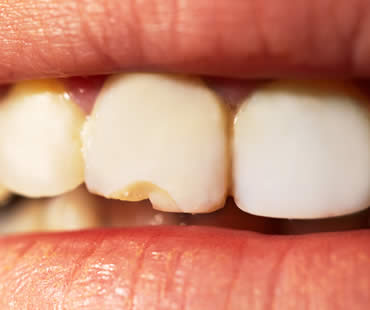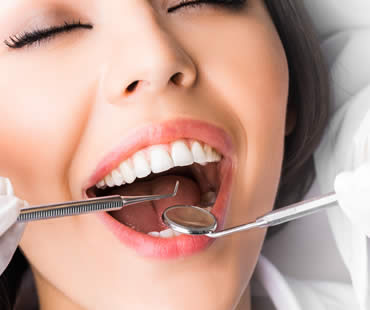
by Dr. Adkins | May 26, 2023 | Blog, Dental Topics 1, General Dentistry
How much do you really know about your mouth? Most people understand basic brushing and flossing, but they may not realize the myriad of factors that influence dental health. Knowing how your lifestyle impacts your teeth and gums can help you make the best choices to protect your smile.
True or False: You don’t need to floss every day.
Answer: False. Brushing alone won’t protect your mouth from decay or gum disease. Floss gets hard-to-reach areas, cleaning out the plaque and bacteria that wreak havoc on your oral health.
True or False: Taking care of your tongue is important, so you should brush it regularly.
Answer: True. The tiny bumps on your tongue called papillae trap food and bacteria, which can cause bad breath. Brushing twice a day will keep your breath smelling great.
True or False: Soft drinks and sports drinks don’t damage teeth.
Answer: False. These beverages, as well as red wine and fruit juices, can lead to enamel erosion. It’s best to stick with water, but if you consume these drinks, rinse your mouth when you finish.
True or False: It’s okay to put your baby to bed with a bottle of juice or milk.
Answer: False. When you let your baby or toddler fall asleep with anything but water, you increase the risk of baby bottle tooth decay. This condition occurs because of prolonged bottle feeding, usually during sleep. Young children don’t have good plaque removal, so these beverages provide a breeding ground for bacteria.
True or False: Fluoride reduces decay 20 to 40 percent.
Answer: True. Drinking water with fluoride strengthens tooth enamel and also reduces the amount of acid that the bacteria in your mouth produce. Since fluoride was added to the drinking water supplies across the country, childhood cavity rates have dramatically dropped.
Schedule a dental cleaning appointment today at our McDonough dentists office.

by Dr. Adkins | Jan 13, 2023 | Blog, Dental Topics 2, General Dentistry
When you have a tooth or multiple teeth with extensive damage, your dentist may recommend a crown or bridge to restore your smile. Most of the time these restorations provide complete and successful results, but occasionally problems arise.
Tooth decay:
Good hygiene is imperative after a crown or bridge because plaque can build up in the area where the tooth and crown meet. Your crown can’t decay, but your tooth still can. Follow your dentist’s instructions for proper brushing, flossing, and fluoride use.
Gum disease:
Plaque buildup around a crown can cause gum disease called gingivitis, and if untreated advance to periodontitis.
Chipping or breaking:
Crowns and bridges are susceptible to damage like fracturing or chipping. Many crowns are made of porcelain, which can chip or completely fail. Heavy wear or stress such as teeth grinding can cause this type of damage, as well as an accident like hitting your restoration. Small chips may be repaired with composite filling, but larger damage can mean total replacement.
Incorrect color:
When having your crown or bridge made, you can choose from a selection of colors. However, the whitest shade is not advised because it likely won’t match the rest of your smile or it can look fake. Make sure you consider the color carefully or else you’ll be faced with redoing the restoration if you dislike it.
Falling out:
Several problems can cause your crown to fall out. The core may fail so that the interior portion of your crown is unable to provide a strong base for the restoration. Less likely, the cement can fail so that the crown simply needs stronger adhesion. Or, the post crown can dislodge so that you’ll see a large post sticking out of your crown. If your crown falls out, be sure to save it for your dentist in case it can be reinserted.
In most circumstances, these problems with your crown or bridge do not occur and you can enjoy a long lifespan with your restoration. If you do notice any of these issues, schedule an appointment with your dentist to ensure optimum oral health.
Our dental office is located in McDonough

by Dr. Adkins | Dec 23, 2022 | Blog, Dental Topics 1, General Dentistry
Cleaning between your teeth and along your gums with dental floss is just as important as using your toothbrush. Although many people complain about flossing or completely avoid doing it, there should be no excuse for neglecting this part of your dental hygiene routine.
Flossing your teeth allows you to get rid of food particles and plaque that is caught between your teeth. It is able to reach areas that your toothbrush can’t. Therefore, flossing plays a key role in preventing tooth decay, gum disease, and bad breath.
You should floss your teeth at least once every day, using a gentle touch so you don’t damage your gums. You can use waxed or unwaxed dental floss, depending upon your preference and which one works best for you. Interdental cleaning aids like picks and sticks may also be carefully used, as well as floss holders. These tools are especially helpful for those with arthritis and vision problems.
Another item that may help remove trapped food debris is a water spray tool called an oral irrigator, although it shouldn’t replace flossing. The same is true for mouthwash, which may be used to help rinse away germs and temporarily freshen breath. You can add these items to your hygiene routine, but giving up flossing should not be an option. Using dental floss is the very best way to attack food particles and plaque so that you have the greatest chance for a healthy mouth.
Dr. Adkins is a family and cosmetic dentist in McDonough

by Dr. Adkins | Nov 25, 2022 | Blog, Dental Topics 2, General Dentistry
Your good health depends on taking excellent care of your teeth. Not only does proper dental care protect your oral health, but it also has a major impact on your overall health. Routine brushing and flossing are just the start. Establishing a relationship with a good general dentist is a vital part of taking care of both your dental health and your general health.
The focus of general dentistry is to stop minor dental problems before they become large health issues. While many dentists now offer cosmetic and restorative treatments, the main responsibility of a general dentist is preventative. Treating cavities, performing root canal treatment, and performing regular cleanings and examinations are some of the important things services by a general dentist.
Even if you take vigilant care of your teeth, only a qualified dentist or hygienist can remove the plaque and tartar that forms around and below your gum line. Regular checkups allow your general dentist to detect problems that could potentially lead to more serious issues. Caught in the early stages, potential trouble like gingivitis or periodontitis can be successfully treated before they become bigger concerns. General dentistry procedures like scaling, root planning, and root canal treatment can be used to save infected teeth.
Prevention is the key to a healthy smile. Taking proper care of your teeth at home and keeping a regular schedule of cleaning and exam appointments with your general dentist will go a long way towards saving your smile for years to come.
Our dental office is located in McDonough

by Dr. Adkins | May 22, 2020 | Blog, Dental Topics 2, General Dentistry
Most of us know we should visit our general dentist every six months for exams and cleanings to ensure optimal oral health, but it seems we find many reasons to avoid those visits. Busy schedules or fear of dental treatments often mean people skip critical routine oral care. However, there are several reasons why you should make regular appointments with your general dentist a priority.
First, routine cleanings by your general dentist will give you a brighter, healthier smile. While brushing and flossing at home are important, it is impossible to remove all of the plaque that accumulates over time. Left untreated, plaque causes decay that leads to cavities and gum disease. Professional cleanings by your general dentist removes plaque and stains, leaving your breath fresher and your smile whiter.
Second, regular examinations allow your dentist to identify potential problems before they become severe. Cavities and gum disease caught early are much simpler to treat, preventing the need for procedures like root canal therapy, crowns, or even tooth extractions. Seeing your general dentist routinely will keep these types of problems in check, and save you from more complex and invasive procedures later.
Finally and most importantly, regular checkups with your general dentist can have a direct impact on your overall health. Poor oral health affects your entire body. A decayed tooth can cause a bacterial infection that spreads to other areas of your body. A general dentist checks your mouth for signs of disease, decay, and even certain cancers.
Stop making excuses and find a qualified general dentist with hours and an office location that is convenient to you. Consult with the staff about your dental fears and learn what types of services are offered to make your visit less stressful. If you value both your beautiful smile and your excellent health, be sure to keep regular visits to the dentist on your calendar.
We treat patients from McDonough and the surrounding area







 770-957-5214
770-957-5214  E-Mail Us
E-Mail Us 
